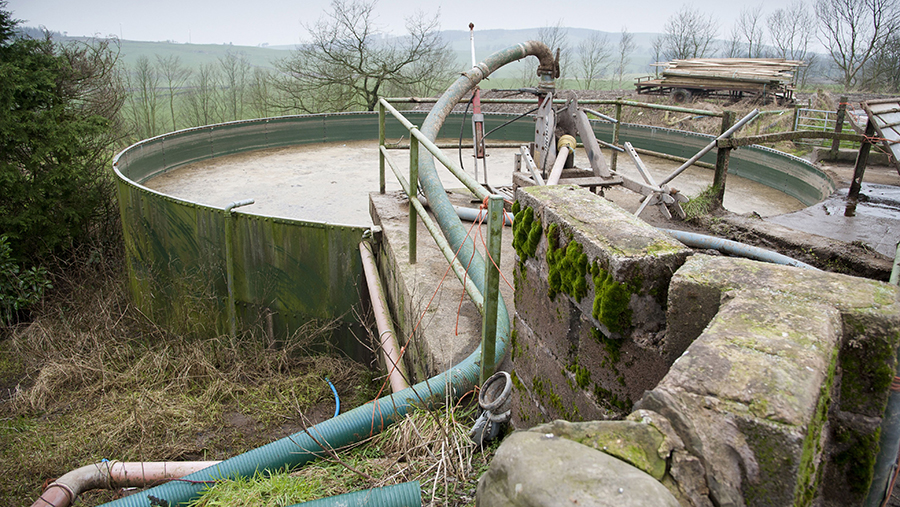Defra help needed for dairies to hit clean air targets
 © FLPA/Shutterstock
© FLPA/Shutterstock Defra needs to offer the dairy industry additional support and guidance if farmers are to meet ambitious government targets to reduce ammonia emissions.
The Royal Association of British Dairy Farmers (RABDF) called on Defra to urgently review targets set out in its Clean Air Strategy after it emerged that many producers are unaware of measures they need to introduce to cut emissions.
Published in January, the strategy set out objectives for the way the country can tackle sources of air pollution in order to protect public health and the environment.
See also: Ways to reduce farm ammonia emissions before regulation comes in
How to control ammonia emissions from farming
- Covering slurry and digestate stores and manure heaps or using slurry bags
- Using low emissions techniques for spreading slurries and digestate on land (for example, by injection, trailing shoe or trailing hose)
- Incorporating manures into soils rapidly after spreading (at least within 12 hours)
- Washing down animal collection points soon after use
- Ensuring that levels of protein in livestock diets are well matched to nutritional needs
- Switching from urea-based fertilisers to ammonium nitrate, which has lower emissions, injecting urea into soil or applying it alongside a urease inhibitor
Source: Defra Clean Air Strategy 2018
This follows an RABDF survey of almost 500 farms that found 40% were “completely unaware” of the strategy’s requirements.
Most farmers were ignorant of the measures they could take to cut ammonia emissions, namely covering slurry lagoons, slurry inoculation and slurry acidification.
Survey findings
- Defra has proposed all slurry storage to be covered by 2025 – only 75 of dairy farms have covered stores
- 27% of farms separate slurry liquids and solids
- Most farmers still use splash plates or tankers. Only 9% and 17% use a trailing shoe or shallow injection
RABDF policy director Tim Brigstocke said: “If we’re going to make the progress Defra expects, then producers need more guidance and support, as well as more realistic recommendations which take into account the different systems and farm types in the industry.”
Mr Brigstocke said Defra’s goals set out in the Clean Air Strategy were commendable, but he emphasised that they must be realistic.
